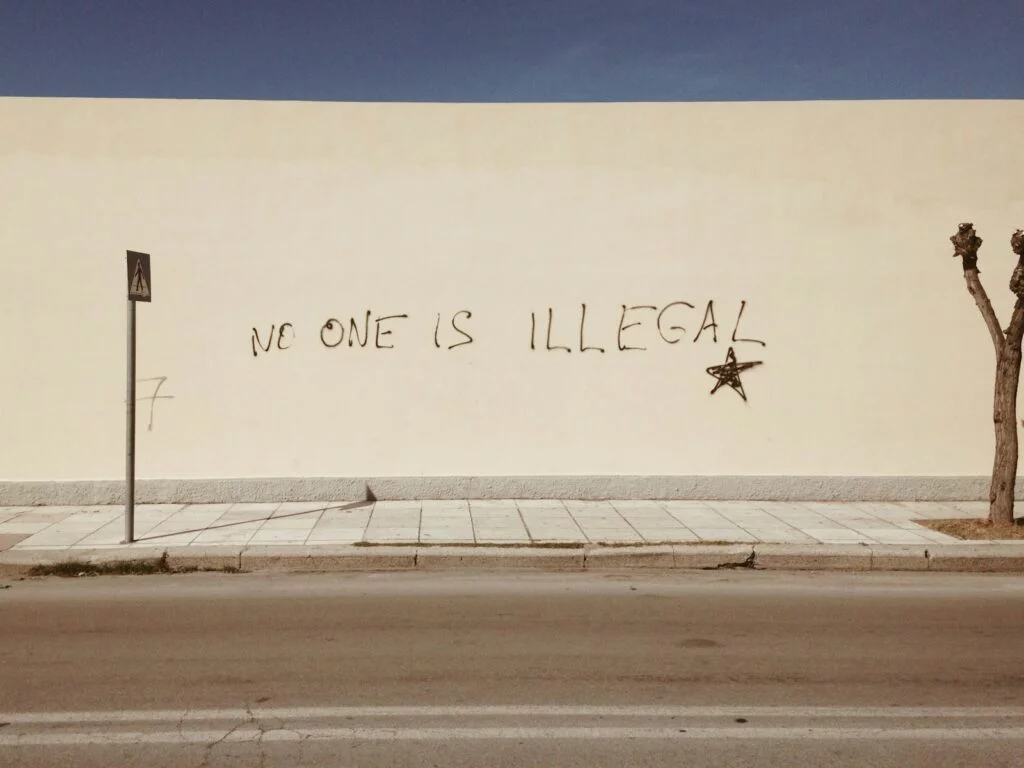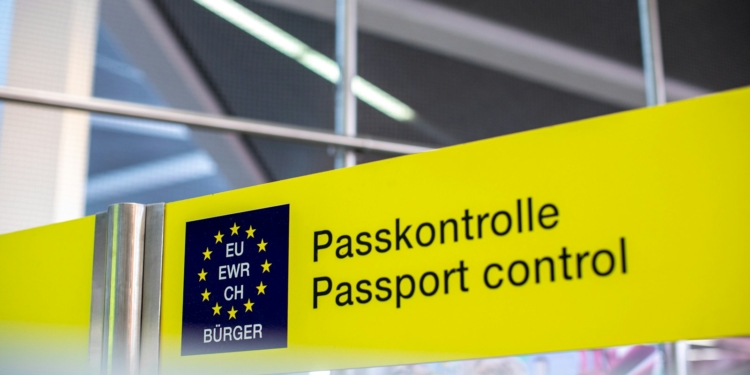Contents
- 1 A Tougher Stance on Immigration
- 2 The Fate of the Visa Lottery Program and International Students
- 2.1 Visa Lottery Program Under Threat
- 2.2 RelatedPosts
- 2.3 Unmasking the Killers: BBC Africa Eye’s ‘Blood Parliament’ Exposes Fatal Shootings During Kenya Finance Bill Protests
- 2.4 Pope Francis’ Legacy: A Pope for the Poor, the Marginalized, and Global Unity
- 2.5 Trump – Zelensky Spat: Is the Age of Modest Pretense Gone?
- 2.6 Challenges for International Students
- 3 Border Wall Expansion and Mexico Relations
- 4 Trump’s Immigration Philosophy: A Merit-Based Approach?
- 5 Implications for America’s Future
- 6 Sweden’s $34,000 Offer to Returning Immigrants: A Global Parallel
- 7 Conclusion: The Impact of Donald Trump’s Return to the White House on Immigration
As Donald Trump prepares to be inaugurated for his second term on January 20, 2025, immigration in the United States is poised for significant challenges. Known for his hard-line stance on immigration during his first presidency, Trump’s return brings uncertainty for millions of immigrants, international students, and prospective visa holders. Here’s an in-depth look at how his policies are expected to shape the future of immigration in America.
A Tougher Stance on Immigration
Donald Trump has consistently advocated for stricter #immigration policies, emphasizing border security and curbing illegal immigration. His administration from 2016 to 2020 implemented several measures, such as travel bans on predominantly Muslim-majority countries, tightened asylum restrictions, and increased deportations.
With his re-election, Trump is likely to double down on these efforts. His campaign rhetoric focused heavily on “restoring law and order” at the border and reducing what he referred to as “uncontrolled immigration.” These priorities indicate a probable resurgence of policies that restrict both legal and illegal immigration.

The Fate of the Visa Lottery Program and International Students
Visa Lottery Program Under Threat
One of the key targets during Trump’s first term was the Diversity Visa (DV) lottery program, which annually allocates 55,000 visas to individuals from countries with low immigration rates to the U.S. Trump criticized this program, claiming it does not prioritize merit or national security. In his second term, the program’s elimination could become a legislative priority.
Related: TikTok Shut Down in the US Due to National Security Concerns Plus How to Regain Access
For thousands of aspiring students and professionals from underprivileged regions, the visa lottery has been a gateway to higher education and better opportunities in America. Its discontinuation would not only limit access for deserving candidates but also diminish the diversity that enriches U.S. campuses and workplaces.
Challenges for International Students
International students could face additional barriers as Trump reimplements stricter visa scrutiny. Policies introduced during his first term, such as limits on Optional Practical Training (OPT) and increased denial rates for F-1 visa applications, led to uncertainty for students seeking higher education in the U.S. His administration also proposed new visa duration limits, which, if revived, could deter students from choosing American universities.
This shift in immigration policy could harm the U.S. economy and academic institutions, both of which benefit significantly from the influx of international students who contribute billions of dollars annually and drive innovation in STEM fields.
Border Wall Expansion and Mexico Relations
Renewed Focus on the Border Wall
The southern border wall with Mexico was a cornerstone of Trump’s first presidential campaign and administration. While his initial efforts resulted in approximately 450 miles of new and replacement barriers, the project stalled due to funding challenges and legal disputes.

Trump’s return to office signals a renewed push to extend the border wall, with likely attempts to secure additional funding. This could exacerbate tensions with Mexico and Latin American countries, as well as spark domestic opposition over the financial and humanitarian costs.
Impact on Migrant Communities
An extended border wall and stricter enforcement could increase hardships for migrants fleeing violence and poverty in Central and South America. Asylum seekers may find it even more difficult to navigate the system, with potential policy changes reinstating the “Remain in Mexico” program or similar measures requiring migrants to wait in unsafe conditions outside the U.S.
The Impact of Trump’s Return to the White House on Undocumented Migrants in the U.S.
Donald Trump’s return to the White House is expected to bring intensified crackdowns on undocumented migrants. His first term saw increased Immigration and Customs Enforcement (ICE) raids, family separations, and the implementation of policies like “zero tolerance” at the border. Undocumented individuals now face the likelihood of heightened deportations and stricter penalties for unauthorized entry.
Fear and uncertainty among migrant communities may grow, leading to reduced access to essential services, reluctance to report crimes, and heightened vulnerabilities to exploitation. This hard line approach risks further marginalizing millions of undocumented migrants who contribute significantly to the U.S. economy and society, particularly in sectors like agriculture, construction, and hospitality.
Trump’s Immigration Philosophy: A Merit-Based Approach?
Throughout his political career, #Trump has championed the idea of shifting the U.S. immigration system to a merit-based model. While the concept aims to prioritize skilled workers, it often excludes individuals from disadvantaged backgrounds who lack access to education and resources but still aspire to contribute meaningfully to American society.
The implementation of a merit-based system could drastically reduce family reunification and humanitarian immigration pathways, fundamentally altering the demographic makeup of new immigrants. Critics argue that such a system would favor wealthier, more developed nations, undermining the principles of opportunity and equality that have historically defined the American immigration landscape.
Implications for America’s Future
Economic and Cultural Consequences
Restrictive immigration policies could have long-term economic repercussions. The U.S. relies heavily on immigrant labor, particularly in industries like agriculture, healthcare, and technology. A decrease in immigration could exacerbate labor shortages, hinder innovation, and slow economic growth.
Culturally, a reduction in immigration would diminish the diversity that has been a hallmark of American society. Immigrants bring unique perspectives, ideas, and traditions that contribute to the nation’s vibrant social fabric.

A Polarized Debate
Trump’s immigration policies have always been polarizing, sparking passionate debates across the political spectrum. Supporters argue that stricter controls protect national security and ensure fair opportunities for Americans, while opponents contend that such measures undermine human rights and the nation’s values as a land of opportunity.
Sweden’s $34,000 Offer to Returning Immigrants: A Global Parallel
Amid the global debate on immigration policies, Sweden has introduced an incentive program offering immigrants up to $34,000 to voluntarily return to their home countries. The initiative reflects growing pressures in many nations to manage immigration amid economic challenges and political opposition.
While Sweden’s approach differs from Trump’s hard-line stance, both highlight a broader trend of countries re-evaluating their immigration strategies. This policy could inspire similar discussions in the U.S., where stricter measures under Trump’s leadership may push immigrants to consider leaving voluntarily or face forced removal. Such developments underscore how immigration policies worldwide are increasingly leaning toward restrictive measures, reshaping the global landscape for migrants seeking new opportunities.
Related: What is Immigration and How to Stop It?
Conclusion: The Impact of Donald Trump’s Return to the White House on Immigration
As Donald Trump begins his second term, the future of immigration in the United States appears increasingly restrictive. From the potential end of the visa lottery to heightened barriers for international students and an expanded border wall, the implications for immigrants and the country at large are profound.
While Trump’s policies may appeal to his political base, they risk alienating global talent, straining international relations, and diminishing the inclusivity that defines the American dream. The next four years will be pivotal in determining whether America remains a beacon of hope for those seeking a better life or adopts a more insular stance on immigration.
It’s been a terrible start so far, as Trump recently referred to Haiti and African nations as ‘sh*thole’ countries. Watch the video below for more on his comments. Courtesy of NBC News.
This article has been written with the help of A.I. for topic research and formulation.








